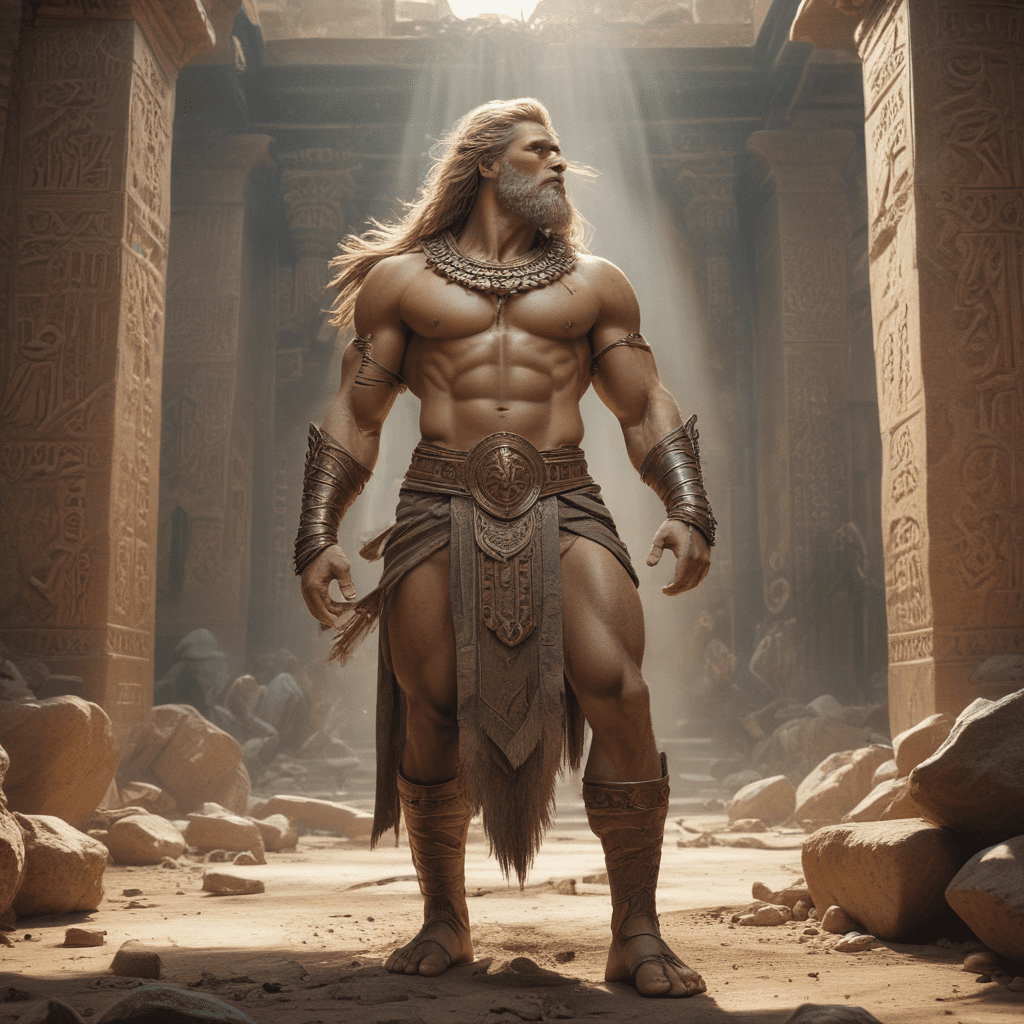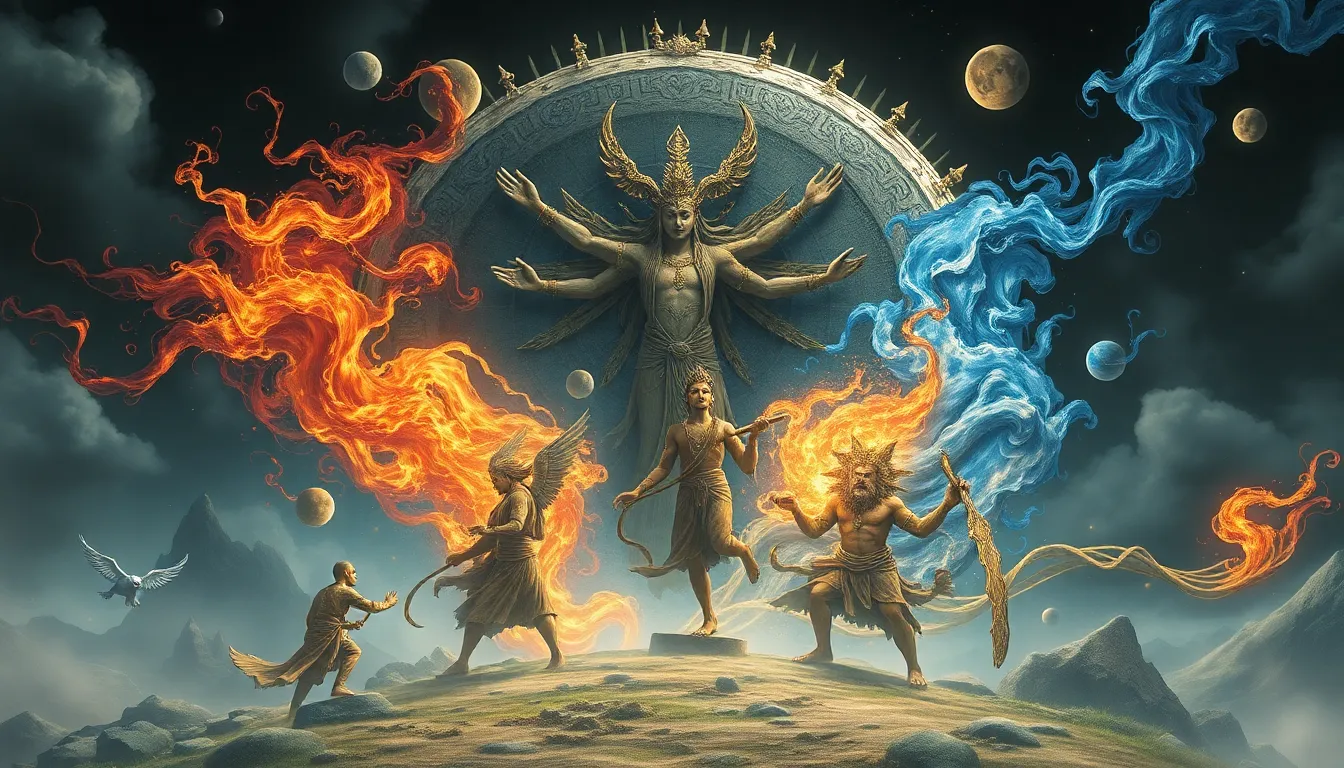1. Introduction: Enkidu in the Epic of Gilgamesh
The Epic of Gilgamesh, a cornerstone of Mesopotamian literature, tells the story of a legendary king and his companion, Enkidu. This epic poem, dating back to the 3rd millennium BCE, offers a glimpse into ancient Mesopotamian values, beliefs, and understanding of the human condition. Enkidu, the wild man tamed by the goddess Aruru, plays a pivotal role in the narrative, serving as a foil to Gilgamesh's arrogance and mortality.
2. The Creation of Enkidu: A Counterpart for Gilgamesh
Gilgamesh, the powerful and arrogant king of Uruk, was a demigod feared and admired for his strength. His tyranny, however, drew complaints from the citizens, prompting the gods to intervene. To curb Gilgamesh's excesses, the goddess Aruru created Enkidu from clay, imbuing him with immense strength and a wild nature. Enkidu roamed the wilderness, living among animals and embodying untamed primal instincts.
3. Enkidu's Transformation from Wildness to Civilization
The path of Enkidu's transformation begins with a confrontation with Shamhat, a sacred prostitute sent by the goddess Ishtar. After days of wrestling, Enkidu yields, experiencing a profound change. He learns to eat human food, wear clothing, and embrace civilization. This transition marks the beginning of Enkidu's journey from wildness to civilization, foreshadowing his bond with Gilgamesh.
4. The Epic Journey: Enkidu and Gilgamesh's Adventures
Driven by a thirst for adventure and glory, Enkidu and Gilgamesh embark on a series of epic quests. Together, they conquer the terrifying Humbaba, guardian of the Cedar Forest, and slay the monstrous Bull of Heaven. These trials forge an unbreakable bond between the two heroes, with Enkidu's loyalty and courage proving invaluable. Their shared experiences reveal the transformative power of friendship and the importance of confronting challenges together.
5. Enkidu's Death and Thematic Significance
The tragic death of Enkidu marks a turning point in the narrative, forcing Gilgamesh to confront his own mortality. Enkidu's descent into the underworld leaves Gilgamesh grappling with grief and the fear of death, questions that drive his subsequent desperate quest for immortality. This pivotal event highlights the fragility of life and the inevitability of death, themes central to the human experience.
6. Theories: Enkidu as a Symbolic Figure
Enkidu has been interpreted as a multifaceted symbol within the Epic of Gilgamesh. Some see him as a representation of nature, untamed and powerful, while others view him as a symbol of human potential, capable of growth and civilization. Enkidu's transformation can be interpreted as a metaphor for human development, moving from primal instincts to embrace societal norms and intellectual pursuits. Additionally, his unwavering loyalty and friendship can be seen as a testament to the transformative power of human connection.
7. Enkidu and the Human Condition
The story of Enkidu resonates with the human condition on multiple levels. His wildness reflects the untamed aspects of our own nature, while his journey towards civilization parallels our own social and cultural development. Enkidu's friendship with Gilgamesh reminds us of the importance of human connection and shared experiences. His tragic death confronts us with the reality of mortality and the profound questions it provokes. Through Enkidu's experiences, the Epic of Gilgamesh explores universal themes that remain relevant to human beings across time and cultures.
8. Enkidu in Mesopotamian Culture and Religion
Enkidu was not merely a literary figure; he held cultural and religious significance in ancient Mesopotamia. He was associated with the water god Ea and worshipped as a protector deity. His image appeared in artwork, and temples were dedicated to him. Enkidu's connection to nature and his embodiment of human potential likely contributed to his veneration among the Mesopotamians.
9. Modern Interpretations of the Enkidu Story
The Epic of Gilgamesh and the character of Enkidu continue to captivate audiences in the modern world. The story has been adapted into various literary and artistic forms, including plays, operas, and graphic novels. Enkidu's journey resonates with contemporary audiences as it reflects human struggles with nature, civilization, friendship, and mortality. Modern interpretations offer fresh perspectives on the ancient narrative, highlighting its enduring relevance and timeless wisdom.
10. Conclusion: The Enduring Legacy of Enkidu
Enkidu's story continues to resonate with readers centuries after its creation. He remains a powerful symbol of human potential, transformation, and the enduring power of friendship. His journey offers valuable insights into the human condition, reminding us of the importance of embracing civilization, confronting mortality, and cherishing human connection. Although his presence in the Epic of Gilgamesh is finite, Enkidu's legacy endures, inspiring reflection and enriching our understanding of the human experience.
FAQ
Q: Who created Enkidu?
A: Enkidu was created by the goddess Aruru from clay, at the request of the gods to counterbalance the tyranny of Gilgamesh.
Q: How did Enkidu transform from a wild man to a civilized being?
A: Enkidu's transformation began with his encounter with Shamhat, a sacred prostitute who introduced him to human ways. After wrestling with Shamhat, Enkidu learned to eat human food, wear clothes, and embrace civilization.
Q: What were some of Enkidu's adventures with Gilgamesh?
A: Enkidu and Gilgamesh embarked on several epic quests, including conquering the Humbaba, guardian of the Cedar Forest, and slaying the monstrous Bull of Heaven. Their shared experiences forged a strong bond of friendship.
Q: What is the significance of Enkidu's death?
A: Enkidu's tragic death forced Gilgamesh to confront his own mortality, sparking his subsequent quest for immortality. This pivotal event highlights the fragility of life and the human struggle with death.
Q: Why is Enkidu considered a symbolic figure?
A: Enkidu has been interpreted as a symbol of nature, human potential, and the transformative power of friendship. His journey from wildness to civilization mirrors human development, while his unwavering loyalty to Gilgamesh underscores the importance of human connection.



